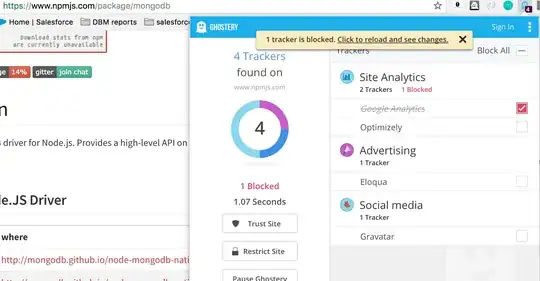Yesterday I was searching DuckDuckGo for booking a vacation. I ended up reading a lot on one specific website. Today multiple websites show me Google banners from this specific website. Normally, I never look up websites for booking a vacation. I use DuckDuckGo on purpose, to prevent these kind of things. My question therefore is: how is this possible?
I'm 100% certain that I didn't accidentally Google something.
The website I was reading was this, if that helps.
